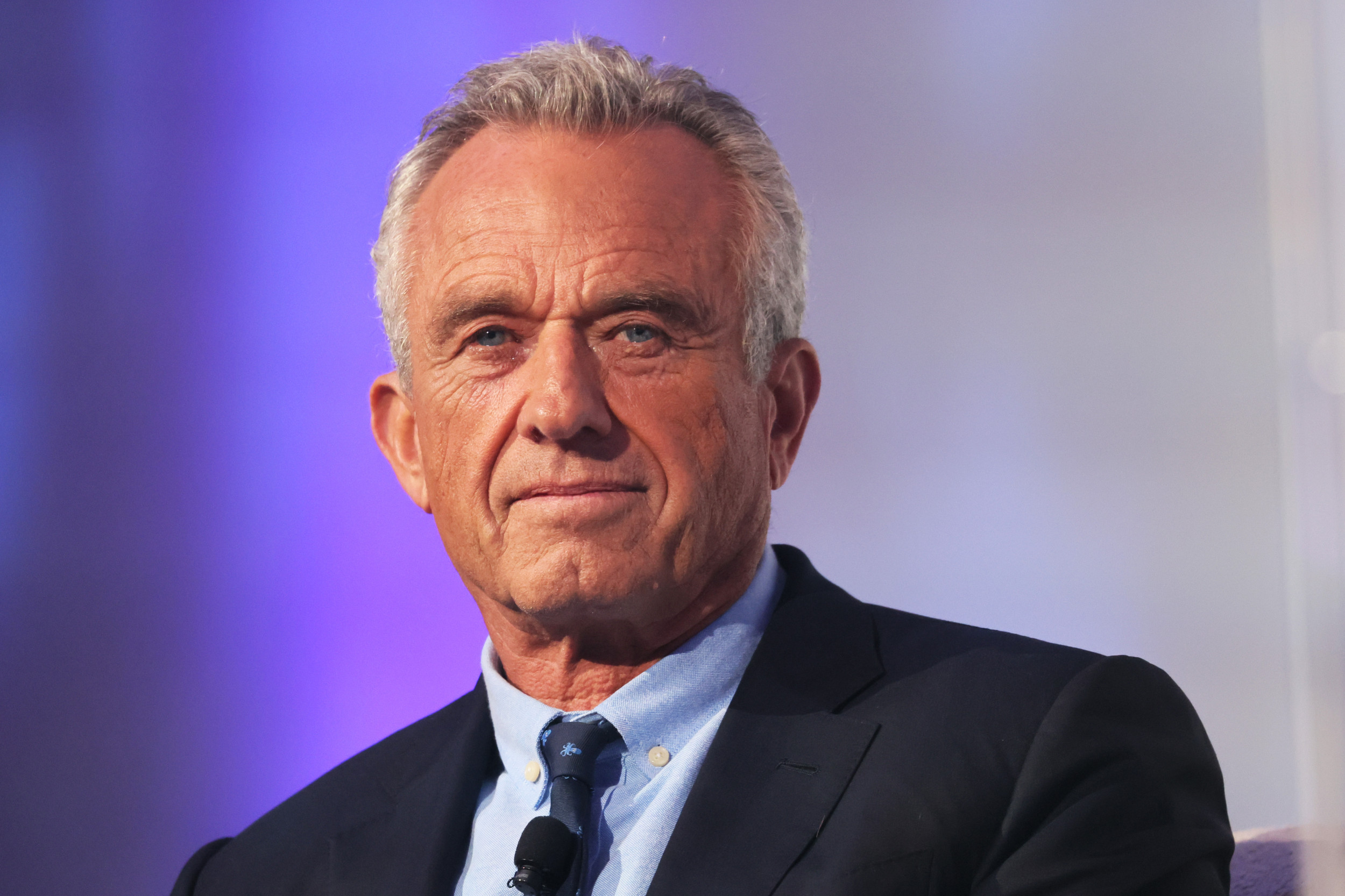Robert F. Kennedy Jr.’s new independent bid for the presidency could pose its greatest threat to the 2024 frontrunners of both parties in Georgia, where vaccine rates suggest that an anti-vaccine candidate could sway the state’s election.
Kennedy, who has emerged as one of the nation’s most prominent vaccine skeptics, announced that he would no longer be running for president as a Democratic candidate on Monday and launched an official bid as a third-party candidate in a move that many politicos expect to shake up a potential victory by President Joe Biden or former President Donald Trump.
Despite claiming that he is not “anti-vaccine,” Kennedy’s comments suggesting “suspicious” deaths among seniors who received COVID-19 vaccines, pushing the link between childhood immunizations and autism and falsely alleging that the 1918 influenza pandemic and HIV stemmed from vaccine research has been extensively documented.
Kennedy’s Monday announcement is most likely to have an outsized impact on the 2024 election in Georgia, where only 59 percent of the population is fully vaccinated against COVID-19. Nationally, 69 percent of Americans are fully vaccinated, data from the Centers for Disease Control and Prevention shows. Only eight other states have rates lower than Georgia—Alaska, Alabama, Arkansas, Idaho, Louisiana, Mississippi, Tennessee and Wyoming—all of which are Republican strongholds.
What makes Georgia different from those solid red states is Georgia’s status as a key battleground state. In 2020, Trump won all eight of those states by more than 52 percent of the vote. Biden, however, was able to score a significant victory in Georgia, where he became the first Democrat to carry the state since Bill Clinton in 1992. The margin of victory was also so slim, with Biden narrowly winning by less than 12,000 votes, that it has cemented Georgia as a critical swing state in modern U.S. politics.
An anti-vaccine sentiment appears to be even more paramount to an election when breaking down Georgia’s elections by county. Of the 12 counties where Trump and Biden were the closest in 2020, 10 counties have vaccine rates below the state average, a Newsweek analysis found.
The percentage of fully-vaccinated residents in Baldwin, Burke, Dooly, Early, Randolph, Sumter, Terrell, Twiggs, Washington and Webster counties all fall below the state’s 59 percent rate, according to data from the Georgia Department of Health. Jefferson County’s vaccine rate is on par with the state average, while Fayette County’s rate is higher at 70 percent.
Experts say that while Kennedy is unlikely to win enough voters in Georgia to carry the state, he could pull away enough votes from Trump or Biden to sway the election one way or another. But the question as to which candidate an independent Kennedy campaign will hurt remains to be known.
There has been debate over whether it will be the Republicans or the Democrats who feel the effects of Kennedy’s bid, with some arguing that an independent Kennedy could attract centrist voters who think Biden is too progressive and others arguing that Kennedy being on the ballot could pull votes away from Trump’s anti-government supporters.
When it comes to Georgia’s vaccine critics, Trey Hood, a political science professor at the University of Georgia focused on southern politics, told Newsweek that Kennedy’s announcement would hinder Trump’s campaign.
“You might have a certain subset of Republicans who really want to sort of vote against [former National Institute of Allergy and Infectious Diseases Director Anthony] Fauci… if they’re really still upset about the pandemic and the vaccinations,” Hood said. “[Kennedy] would probably take votes away from Trump more than from Biden.”
On the other hand, GOP strategist Matt Klink said Kennedy as a third-party candidate Kennedy will do more damage to Biden because of Kennedy’s name recognition and Democrats’ increasing wariness about a second Biden term. A CNN poll from last month found that 67 percent of Democrats and Democratic-leaning independents don’t think the president should run for re-election.
“The Kennedy name in Democratic circles is the gold standard. In spite of his ‘out-of-the-mainstream’ views on vaccines, significant angst exists among Democrats about Joe Biden’s mental decline and his age,” Klink told Newsweek. “Additionally, in key swing states, Georgia being one of them, vaccine rates are lower than the national average so RFK, Jr. may gain traction.”
Audrey Haynes, a University of Georgia professor, said Kennedy could also pull votes away from both Trump and Biden, either hurting both candidates the same or one more than the other.
“If Trump and Biden are the nominees, my gut tells me it is going to be a strange election. Either huge turnout again, or malaise,” she told Newsweek.
But some say it’s still too early to tell. Republican consultant Alex Patton told Newsweek that because independent candidates typically poll better than their ballot box performance, the support Kennedy may benefit from in surveys leading up to the 2024 election may be a poor indicator of how Americans will actually vote on Election Day.
“Current polling allows voters to express a desire to register distrust or disgust with political choices. There is no penalty for it.” Patton said. “As we move closer to election day, depending on how close the election may or may not be, voters start questioning if their vote will be wasted and often change their voting behavior by moving away from the independent.”
Hood agreed that Kennedy may not have the influence that polls predict, but noted that if the next election is as close as it was in 2020, “anything could have an impact.”
“Anything drawing away from Trump or Biden could have an impact,” he said.

